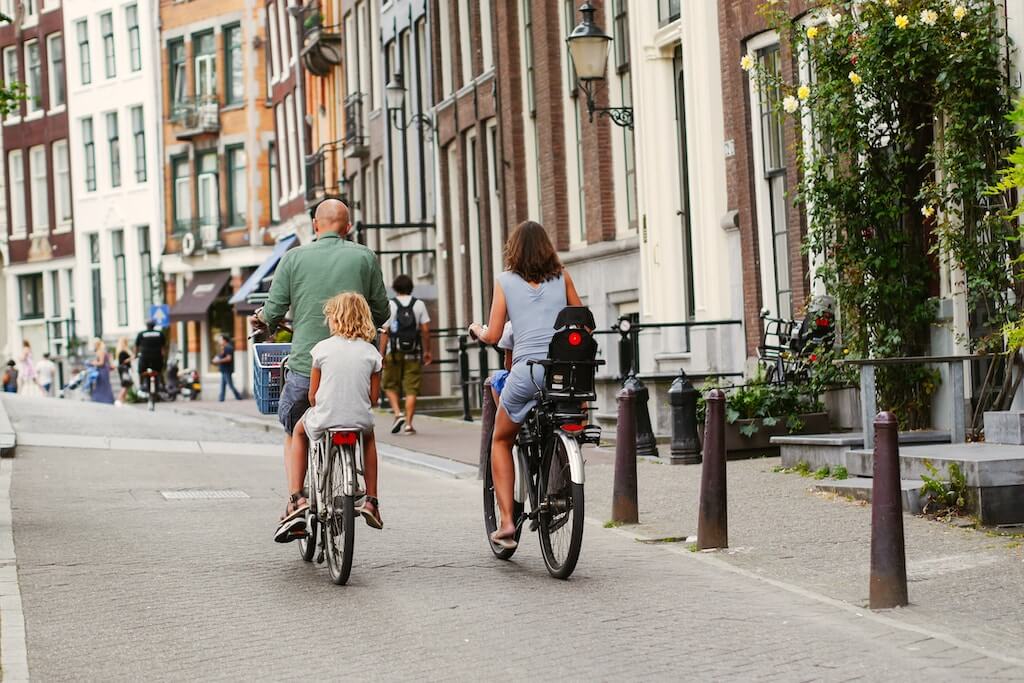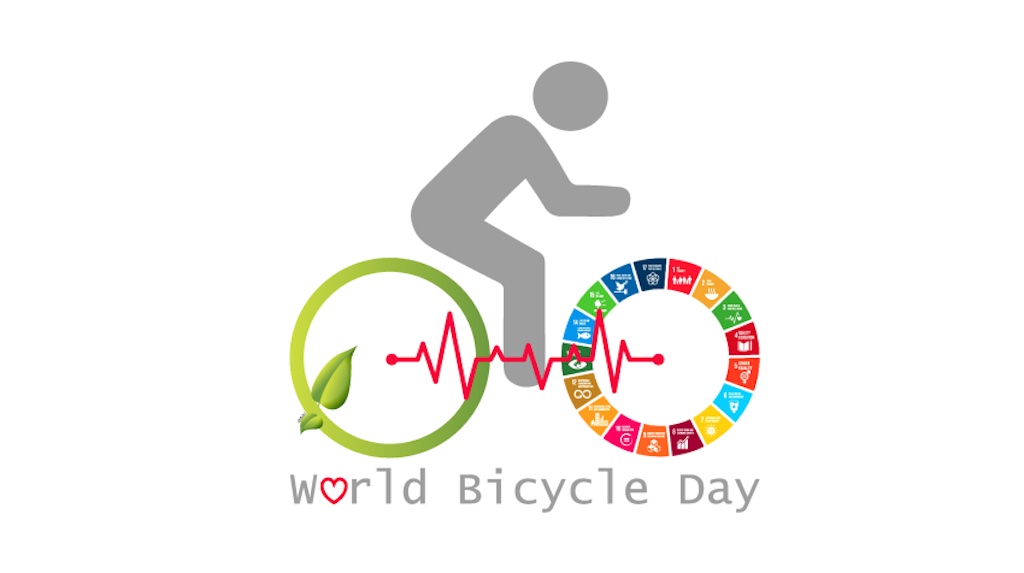Autumn Gear Guide
Find inspiration in our Gear Guide that will keep you out on your bike through wind or rain.
Download NowCycling is everyone’s business, and World Bicycle Day is a day to recognise and celebrate the importance of the humble bicycle. Since 2018, World Bicycle Day has been celebrated globally. The UN resolution, adopted on April 12, 2018, highlights the bicycle’s uniqueness, affordability, and environmental benefits. It emphasizes how cycling fosters environmental stewardship, health, creativity, […]
Cycling is everyone’s business, and World Bicycle Day is a day to recognise and celebrate the importance of the humble bicycle.
Since 2018, World Bicycle Day has been celebrated globally. The UN resolution, adopted on April 12, 2018, highlights the bicycle’s uniqueness, affordability, and environmental benefits. It emphasizes how cycling fosters environmental stewardship, health, creativity, and social engagement. The bicycle is not just a mode of transportation; it enhances access to education, healthcare, and sports. It’s a symbol of sustainable transportation with a positive impact on climate and sustainable consumption.
Leszek Sibilski, a Polish-American sociologist and track cyclist, is known for initiating World Bicycle Day. His advocacy career started with two influential blog posts. The first, in 2015, titled “Cycling is Everyone’s Business,” emphasized the universal importance of cycling. The second, a year later, titled “Why is there no World Day for the Bicycle,” advocated for recognizing the bicycle’s significant contribution to human well-being and ultimately sparked the movement for World Bicycle Day.
Bona fide ‘cycling brainwasher’ Pinar Pinzuti spoke with Professor Sibilski, the originator of this day, about the impact of its recognition by the United Nations.
Leszek Sibilski: The creation of World Bicycle Day feels like destiny for me. I started competitive cycling at age 11 in Poland, quickly becoming a national champion. After a successful career in cycling, I graduated from the Polish Academy of Physical Education with a master’s in physical education and coaching.
I then became a photographer and reporter for Poland’s equivalent of Sports Illustrated. My career evolved, and I pursued a PhD in Applied Sociology, specializing in Social Action and Social Movements. I contributed to the UN Convention on the Rights of Persons with Disabilities, becoming familiar with UN procedures.
As an academic in the US for over 20 years, I taught courses on disabilities, sports, and social movements, gaining insight into the needs and thoughts of young people. This background and experience naturally led me to advocate for cycling and later initiate World Bicycle Day.
While consulting for the World Bank, I proposed including bicycles in climate change discussions, as they are a clean transportation option. Initially, my suggestions were dismissed by various delegations, including the Italians, Dutch, and Polish embassies.
However, the Turkmenistan delegation supported the idea. Within three months, we had smooth negotiations, and the proposal moved forward. I believe bicycles deserve recognition. Just as every person has a birthday, bicycles should have a day of celebration. World Bicycle Day, endorsed by the UN, significantly boosted global efforts to promote cycling. This marked a turning point in global bicycle advocacy.

I’m pleased you use the term “evolve.” Yes, World Bicycle Day is evolving. I’ve adopted a strategy called “incremental nudging,” where I consistently promote cycling in a gentle but persistent manner. This approach helps raise awareness and encourages change.
The timing has been fortunate, as the world increasingly recognizes the importance of bicycles in daily life. While the adoption varies by country, there is a growing global consensus that bicycles are essential. The unanimous acceptance of World Bicycle Day by the UN General Assembly reflects this shift. It’s not perfect, but significant progress is evident.
Advocacy has been crucial in bringing cycling to the forefront of global agendas. Following World Bicycle Day, I proposed another resolution to integrate bicycles into public transportation, which has gained traction. Last year, we collaborated with UNESCO on a decision called “Bicycle for All,” recognizing bicycles as essential for physical education in schools. This is vital because cycling is a life skill, much like swimming.
Moreover, promoting cycle tourism and ensuring proper infrastructure are key goals. My efforts in Poland are seeing success, with increased interest and initiatives. The involvement of manufacturers who are emotionally invested in cycling is also essential. The bicycle, invented over 200 years ago, remains relevant and necessary.
A local example from the US highlights the bicycle’s importance: during a gasoline shortage caused by a cyberattack, people turned to bicycles as a reliable alternative. Every family should have a bicycle for such emergencies, emphasizing its role in ensuring freedom of movement.
Looking to the Netherlands as a model, we must recognize that their success in cycling infrastructure took over 100 years of development and redevelopment. Each country must evolve at its own pace, respecting local customs and gradually building a cycling culture. Advocacy and education will help achieve this.
I am very optimistic about women’s potential to make a significant impact in the future. Promoting women’s cycling is essential, as they put their heart into it. Women have truly enriched the spirit of World Bicycle Day.

This year, I am focusing on community-driven initiatives to promote cycling. I want to engage as many people as possible, encouraging them to take shared ownership of cycling. Everyone needs to feel responsible for it, which will help prevent recklessness and ensure attention to detail.
Living in the US, I’ve learned that democracy is flexible and requires constant involvement to maintain influence and message. Similarly, in cycling advocacy, we must stay vigilant and involved to protect and promote the bicycle. Ensuring that cycling remains a protected and valued activity is crucial for its future.
Promoting cycling is inherently linked to the push for decarbonizing transportation. However, cycling has been a decarbonized mode of transport for centuries, and as advocates, we should focus on advancing and confidently promoting this. Organizing events to engage people, especially the youth, is crucial.
The European Cycling Declaration is a significant piece of legislation that can inspire many. We need to understand and value our message, promoting it smartly and transparently. Constantly monitoring the status of cycling and avoiding missteps is essential.
The UNESCO declaration that designates bicycles as instruments of physical education is particularly exciting. It allows us to engage with ministers of education and health, reinforcing that cycling is a shared responsibility and beneficial for everyone.
World Bicycle Day, alongside United Nations recommendations, calls for global cooperation to prioritize cycling in infrastructure, sport, health, and tourism. These suggestions stress the importance of integrating bicycles into development policies, promoting road safety, and recognizing cycling’s impact on sustainable development, education, and social inclusion. It encourages initiatives to promote cycling for all members of society, fostering physical and mental well-being and nurturing a cycling culture. Together, these efforts aim to create healthier, more sustainable, and inclusive communities worldwide.
Happy World Bicycle Day.
Special guest writer Pinar Pinzuti is a project manager at Milan based company Bikenomist, writer for the magazine Bikeitalia, organizer of the Cycle Tourism Expo – Fiera del Cicloturismo – and coordinates the international grassroots movement “Fancy Women Bike Ride. She is also a member of the Eurovelo Council since June 2022.
Find inspiration in our Gear Guide that will keep you out on your bike through wind or rain.
Download Now
Leave a comment